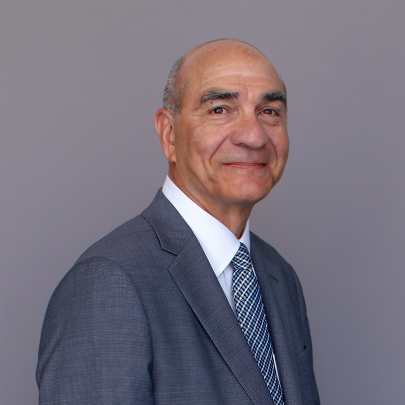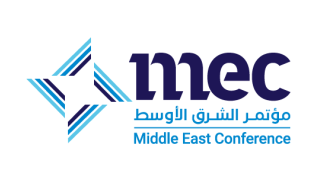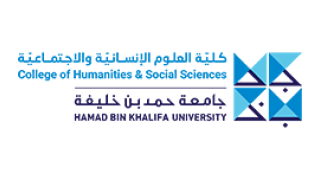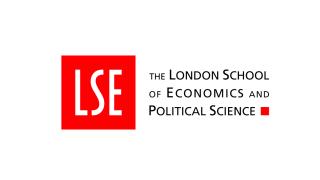MIDDLE EAST CONFERENCE 2024
Gender, Technology, and Digital Cultures in the Middle East
February 18-19, 2024
The Middle Eastern Studies Department at the College of Humanities and Social Sciences at Hamad Bin Khalifa University (HBKU), in partnership with the Middle East Centre at the London School of Economics and Political Science (LSE), is organizing the second edition of its two-day conference in Doha, Qatar on the topic of Gender, Technology, and Digital Cultures in the Middle East. The opportunity to attend the conference will be offered in person and online.
Welcome Message
I am delighted to welcome you to our second international Middle East Conference, organized in partnership with the Middle East Centre at the London School of Economics and Political Science (LSE). The conference is hosted by our Middle Eastern Studies Department (MESD) at the College of Humanities and Social Sciences (CHSS). It will be delivered in person in Doha and online.
CHSS was established with a vision to enrich and empower society in Qatar and across the wider region. Another international conference on the Middle East, held in the Middle East, is a timely initiative for understanding the complexities and challenges our region faces, at a time when it continues to be in the spotlight.
The theme of the conference - Gender, Technology, and Digital Cultures in the Middle East
I look forward to hosting you at this special event in February, whether in person or online.
Organizing Committee - Welcome Message
We are delighted to welcome you to our conference on "Gender, Technology, and Digital Culture in the Middle East" hosted by CHSS’ Middle Eastern Studies Department at HBKU, in partnership with the LSE's Middle East Centre.
At a time when the Israeli settler-colonial regime continues its genocidal attacks on Gaza and wider Palestine, we, as the conference organizing team, find it paramount to stress our solidarity with Palestinians. We have dedicated substantial parts of the conference to the Palestinian struggle, highlighting digital activism, gender, and cultural production, as well as media representations and practices as potential sites of Palestinian resistance against Israeli settler state violence and oppression. We embrace this focus not only as a scholarly endeavor but more importantly as an act of solidarity aimed at amplifying and strengthening Palestinian voices for justice and freedom.
We look forward to you joining us.
Middle East Conference 2024
MIDDLE EAST CONFERENCE 2024
Gender, Technology, and Digital Cultures in the Middle East
February 18-19, 2024
The Middle Eastern Studies Department at the College of Humanities and Social Sciences at Hamad Bin Khalifa University (HBKU), in partnership with the Middle East Centre at the London School of Economics and Political Science (LSE), is organizing the second edition of its two-day conference in Doha, Qatar on the topic of Gender, Technology, and Digital Cultures in the Middle East. The opportunity to attend the conference will be offered in person and online.
The first day is dedicated to the theme of “Gender and Feminisms in the Media Practices in/of the Middle East”, with discussions focusing on the nuanced interplay of technology, gender, and media, including topics such as:
- Media Representations: Examining how femininities and masculinities are portrayed in media, archival, and cultural productions in the Middle East.
- Technology and Violence: Investigating the intersections of gender, race, and class with technology and violence.
- Digital Activism: Analyzing women's digital activism and the theories and practices of (cyber) feminism in the region.
- Research Ethics and Methods: Discuss the methods and ethics involved in researching gender in digital contexts.
The second day focuses on the theme of “Digital Insights and Challenges in the Middle East: Computational Text Analysis, Misinformation, and Hate Speech Detection”. Presentations will provide insights into the politics of technology and gender, computational text processing, misinformation, and social media analysis in the Middle East with discussions on topics including:
- Computational Text Analysis in Media: Examining how computational techniques can analyze media content in the Middle East, focusing on patterns, trends, and narratives.
- Misinformation in Social Media: Identifying and addressing the spread of misinformation and fake news in Middle Eastern social media and understanding its impact on public perception and socio-political events.
- Social Media Analytics and Political Sentiment: Investigating the use of social media analytics to gauge political sentiment in the Middle East, and its implications for understanding regional socio-political dynamics.
- Arabic Language Processing: Exploring advanced computational approaches to process the Arabic language aiming at enhancing text analytics, stylometry, and other quantitative methods for more effective social media analysis in the region.
The conference promises engaging interdisciplinary discussions with leading scholars who are conducting cutting-edge research relevant to the region.
Registration
Conference registration is essential to receive the credentials to attend in person or online which will be emailed to registrants after submitting this form.
Enquiries
For further information, please direct your inquiries to the Conference Administrator: Mrs. Sabina Huseynova via email at shuseynova@hbku.edu.qa
College of Humanities and Social Sciences (CHSS)
The College of Humanities and Social Sciences (CHSS) was established with a vision to enrich society in Qatar and across the wider world with transformative educational experiences that bridge disciplinary boundaries and offer the academic community opportunities to engage in innovative research and collaboration. We aspire to nurture a diverse body of academically grounded and socially responsible global citizens, whose versatility will enable them to navigate the complexities of today’s world and become the leaders of tomorrow.
The Middle Eastern Studies Department currently offers two MA programs with a projection to expand and offer other programs within a three-year time horizon. The two MA programs are as follows:
For more information on CHSS, please see: chss.hbku.edu.qa
Hamad Bin Khalifa University (HBKU), Doha
Hamad Bin Khalifa University (HBKU), a member of Qatar Foundation for Education, Science, and Community Development (QF), was founded in 2010 to continue fulfilling QF’s vision of unlocking human potential. HBKU is a homegrown research and graduate studies university that acts as a catalyst for positive transformation in Qatar and the region while having a global impact.
For more information on HBKU, please see: hbku.edu.qa




